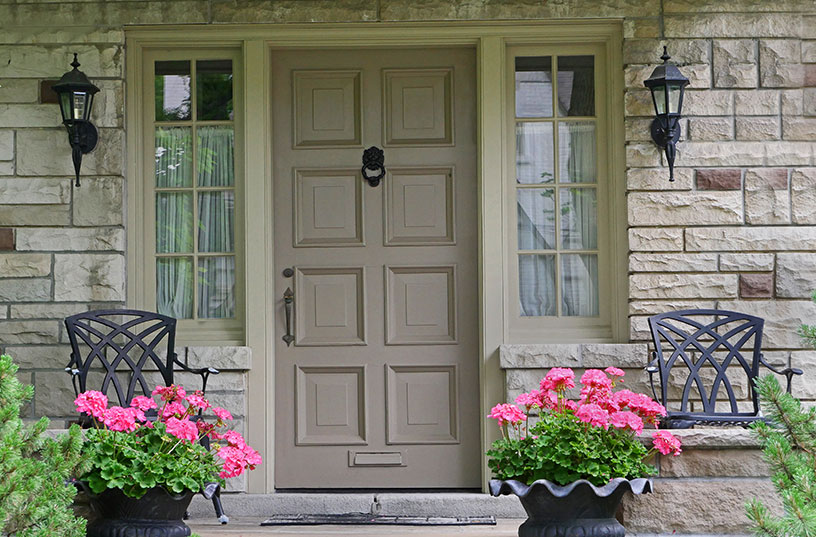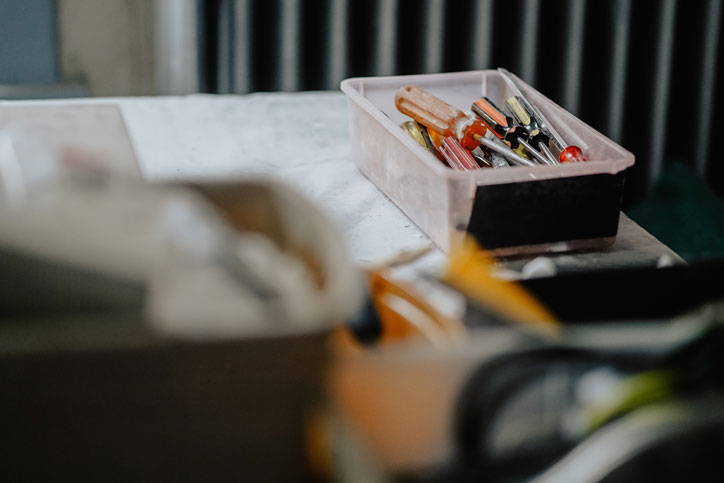“Everyone must leave something behind when he dies…a child, a book, a painting, a house, or a garden planted. And when people look at what you planted, you’re there.”
– Ray Bradbury
When a loved one dies, the grief can be overwhelming. Unfortunately, though you may not feel up to it, there is a long list of things that cannot wait to be accomplished. In addition to planning a funeral, there are legal and financial issues that must be dealt with.
“The amount of paperwork can take survivors by surprise,” emphasized Bill Harbison, a trust and estates lawyer. “It’s a big responsibility, and there are a lot of details to take care of. In some cases, the process can take a year or more to complete.”
His advice, and mine, is to rely on the help of others, such as lawyers, real estate agents, financial advisors, and of course, friends and relatives that you can lean on for support.
Let Me Share My Story
Before I begin listing all the tasks that need to be taken care of, I want to share my story with you. I believe that learning from the experience of others can be very helpful, and I hope my story can make someone else’s life a bit easier during a difficult time.
My journey started in 2016, when my mom died, and I found out my parents had put their house in Tennessee in my name. As a family, we decided to move Dad back to Michigan so he could be closer to family, and I could take care of him. We built a house together near other family members. During that process, I relied on the help of real estate agents in Tennessee and Michigan to sell our existing homes. I experienced firsthand the help knowledgeable agents can provide during a stressful time, which prompted me to quit my corporate job and become a Realtor.
In December 2023, my Dad died from an aggressive form of cancer. We only had five months from the time of diagnosis to the day he passed away. While I am grateful for every second of that time together, I was shocked at how quickly life can change, and I realized how important it is to plan ahead.
Don’t Put off Important Conversations
No one likes to confront their own mortality or have difficult conversations about loved ones dying. However, it’s important to make plans. Having a trust or will not only protect your property but will make a very difficult time easier for your loved ones. Personally, I would suggest looking into a trust. Trusts have become popular because they are flexible and can cover a wide variety of details. (One word of caution: Always use a reputable advisor. Last year, I helped a family sell a deceased loved one’s home and it became a challenge because although a trust had been set up, the house had not been included. We eventually solved the issue, but it created unnecessary stress for the family.)
The time to have important conversations about your wishes and establish a will or trust is when you or loved ones are in good health and can make sound decisions. Because, sadly, you never know what the future may bring.
I am not a lawyer, financial planner, or tax advisor, but I can offer some practical advice based on my personal experience, as well as my experience as a Realtor about what your family may need in the event of a loved one’s death – and encourage you to plan ahead. As you do, always consult with the appropriate professionals for advice regarding planning, trusts, wills, life insurance and probate.
Things that Must be Done
As mentioned, there is a long list of tasks that need to be done after a loved one dies. Certain things on that list need to be completed as soon as possible. These include:
- Secure major property – If your loved one lived alone, secure their property, including any vehicles. If they lived in a rental property, notify the landlord. If they owned a lease vehicle, notify the dealership. In my Dad’s case, I contacted Ford Motor Credit’s Deceased Person Care Department and the process of turning in his truck was seamless.
- Locate important documents – Ideally, you should know where important documents are kept or have copies of them. If your loved one had a will, trust, premarital agreement, or military discharge, these documents should be gathered and given to the person responsible for handling their final affairs. I was responsible for handing my Dad’s estate, and thankfully, we had gathered most of the necessary information before he died.
- Locate financial information – Bank account information, retirement accounts, stock certificates, savings bonds, deeds to real estate, keys to a safe deposit box, copies of tax returns and tax documents such as 1099s and W-2 forms, social security number, and bills owed by your loved one will all be needed to settle the estate. Again, it’s very helpful if someone knows the location of these documents and how to access them prior to an illness or death.
More Important Information
If your loved one didn’t have a will or trust, a probate court judge will name an administrator in place of an executor. Generally, probate is necessary when a person dies owning property in his or her name alone. The probate process should start as soon as possible because it may take months to resolve your loved one’s estate.
If your loved one did have a will or trust, and you are the executor you’ll need to gather the information listed above, and then determine whether you need to hire a lawyer. Depending on the circumstances, some families choose to settle affairs on their own, while others enlist the help of an attorney.
As the executor of your loved one’s estate, you will most likely be responsible for handling the following details:
- If your loved one was receiving social security benefits, alert the social security administration (SSA) as soon as possible to avoid receiving further payments. When Dad died, the funeral home handled this for us. Although this didn’t apply in our case, some family members may be eligible to receive death benefits from the SSA, so be sure to ask.
- If your loved one was receiving pension benefits, alert the plan administrator as soon as possible. Some pensions end at the time of death, while others provide for payments to a surviving spouse or dependent children.
- If you had a joint bank account with your deceased loved one, notify the bank. If your name is on the account, you will have full access to the funds when your loved one dies.
- Notify and cancel any utilities, credit cards, subscriptions, or memberships your loved one might have had to avoid unnecessary payments.
- File claims for any life insurance policies your loved one may have had. You’ll need an original, certified death certificate and the policy information. It’s advisable to do this as soon as possible as it takes anywhere from two weeks to two months to receive benefits and those funds may be needed to pay bills.
- Notify the three major credit bureaus (Equifax, Experian or TransUnion) of your loved one’s death to help prevent identity theft.
Real Estate Issues
- If your loved one lived in a home they owned jointly, the surviving owner will typically receive full ownership of the home. As an example, in Michigan, a form of joint tenancy called Tenants by Entirety is commonly used by married couples who own property. When one spouse dies, his or her interest automatically passes to the surviving spouse.
- If your loved one lived in a home they solely owned, ownership must be transferred. A house cannot stay in a deceased person’s name. Depending on the direction of the deceased person’s will, the probate court and/or state succession law, the process of transferring ownership will vary. Remember, if assets are going through probate court, you don’t have the authority to sell them! You are not the legal owner.
- If your loved one lived in a home held in a trust and the house will be sold, the trustee(s) must be notified as the first step in selling the house. Property transferred to a trust before the decedent’s death is administered according to the terms of the trust and doesn’t need to go through probate.
- If you are responsible for selling a deceased loved one’s house, hire an experienced estate agent. Talk with several agents to get a feel for their knowledge and problem-solving ability. Hopefully, you won’t encounter issues, but if you do, you want someone with proven skills. Ask yourself, will this agent be responsive to my family’s needs? Can I see myself working through any difficulties with this person?
Overall, the best way to protect your property is to create an Estate Plan. It’s crucial for every homeowner, regardless of your marital or ownership status is to plan ahead.
In fact, planning is one of the most thoughtful and important gifts you can give your loved ones. When your affairs are in order, your loved ones can focus on supporting one another and processing grief, instead of worrying about legal and financial issues.
A Very Good Day
One gorgeous day, when my Dad was feeling better than usual, we took a drive together. He pointed out all the houses that he had built or renovated in the small town where I grew up. It made me smile – and it also made me think that maybe I was always meant to be in real estate – something I hadn’t realized until that moment. It’s in my blood and I love what I do.
Taking care of the details after a loved one dies can be overwhelming, but I promise you will get through it. Don’t be afraid to rely on the help of others and give yourself permission to grieve during the process. Once things settle, you’ll still be grieving, but you’ll also have time to remember the good days, which stay with us always.
If you have lost a loved one and would like to talk, please reach out to me. I’m happy to listen, provide a shoulder to lean on, answer questions, or refer you to other professionals for assistance.










